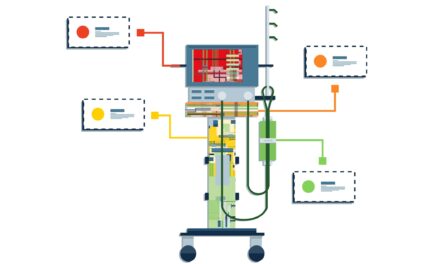Encinitas, Calif.-based MediMizer announces that it has integrated with Asimily Insight for cybersecurity. The joint solution automates the discovery of connected inventory and the challenging process of creating and maintaining a single, trusted medical device inventory.
The integrated technologies facilitate the identification and classification of connected medical devices on the network, along with the ability to prioritize at-risk devices and, within it, the most critical vulnerabilities. Asimily provides passive monitoring for real-time threat detection and actionable intelligence for healthcare technology management (HTM) and security operations teams to work together for rapid remediation of known vulnerabilities and threats.
Moreover, the bi-directional integration enriches Asimily’s machine learning capabilities using contextual medical device data. MediMizer then benefits from real-time security incident information to drive the cybersecurity remediation workflows.
“Our customers can rely on Asimily’s capabilities to deliver critical cybersecurity capabilities to identify, evaluate, prioritize, and mitigate vulnerabilities and protect connected devices and other important operational insights into their critical infrastructure. Our mission is to keep the connected device fleet safe and reliably utilized to ensure better patient outcomes,” says Consti Fernandes, vice president of engineering, Asimily.
Fernandes adds, “Our integration with MediMizer allows customers to turn insight from the platform into action by enabling the healthcare system to instantly react to and remediate security threats targeting their connected device fleet.”
Mark Woodruff, MediMizer’s chief technology officer, also spoke out about the integration, commenting: “Our integration with Asimily provides cybersecurity capabilities that deliver on the promise of keeping connected devices safe and reliable, protecting patients, and [providing] HTM departments the tools to shield healthcare systems from the liabilities and exposures resulting from cybersecurity exploits.”





